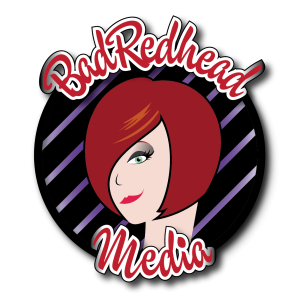The Writing Process by guest @lisettebrodey
THE WRITING PROCESS
How my life experiences have shaped the way I write
One of the most common questions people have for writers is “How does your creative process work?” Writers aren’t exempt from wanting to know the answer to this. In fact, they may be the most curious group of all when it comes to learning how their fellow authors plot, scheme, write, rewrite, edit, and on and on.
I interview writers regularly at my writers’ chateau, and I always ask several questions about the process. I never cease to be fascinated by how alike and how different we can be when it comes to the creation of our unique works.
What works brilliantly for one author may be the kiss of death for another. For example, there are authors who not only share a work in progress with friends or a critique group, but will post the same work online. Doing so enables authors to get honest feedback from potential readers and gives them better direction on how to proceed with the story. Would I do this? Um, no. I’d rather stick a needle in my eye or eat a beet. (Well, not so sure about the latter.)
When I was much younger, I had plotted out this wonderful story about XYZ. I told someone close to me about my idea and was asked “What do you know about XYZ?”
Think of the thickest steel door you can imagine; now picture it being slammed shut. The split second I heard that, all my confidence disappeared, and I never looked at the story again for twenty years. By that time, I’d completely forgotten what I wanted to do with it. (And for the record, I did know enough about XYZ to write the book.)
But what came out of that experience (even though I hadn’t shared actual content) was that I realized that I’d rather wait until I’m done writing to hear what most people have to say. For me, I need to stay in my bubble while I write. I don’t want outside influences distracting me or causing me to doubt my direction; editors and beta readers can do that after I’m finished. At that point, I’m happy to listen and do everything I can to improve my work. Feedback is crucial to success, but it needs to come at the right time.
Another area of the writing process that fascinates me is plotting. Not only do I question authors about outlining, but I often ask, “Are you a plotter or a pantser?” A pantser, as you probably know, is an author who dives in and writes by the seat of his or her pants, without a firm plot in mind.
I’ve been writing most of my life and I always thought I was a great pantser. Because of that, in my earlier years, I amassed a rather huge collection of unfinished short stories and novels. Then I suffered a decade-long bout of writer’s block. Yeah, right. That’ll get a writer nowhere fast.
How did I overcome my writer’s block? Well, I asked myself what was really bothering me, and then I demanded honesty. I figured out two things. First, although I have the ability to sit down and write for days with no plan, not knowing how the story would end was not conducive to finishing a book. Today, I write character-driven novels with multiple story arcs, and it’s imperative that I know where I’m going. I don’t “micro plot,” and there is lots of room for surprises along the way, but I must know where I’m headed and “where the bodies are buried.”
In conducting a recent interview with New York Times best-selling author Jonathan Maberry, I asked him if it was important to know the ending of a book before he writes it. His response: “Always. Without that how can you plan for nuance, subtlety, and foreshadowing? How could you lay clues?”
Exactly! That was the lesson I learned many years ago. But there are some authors who write a different kind of book, and for them, it’s a wild ride from start to finish with no clue where they might end up. And it works. As I mentioned, authors have very different ways of doing the same thing.
The second reason for my writers’ block was far more personal. (Thank goodness I was honest with myself!) I realized that, like many others, I had a fear of success and a fear of failure both at the same time.
My fear of success was unconscious. It was a weird, intangible thing that made me want to stay in my comfort zone because I didn’t really know where I belonged. Although I had dreams, I wasn’t as comfortable chasing them as I thought I was. To this day, I see a lot of people who have a fear of success and like I was, I don’t believe they’re all truly aware of it.
The fear of failure, which is far easier to understand, affected me in such a way that I condemned myself for writing a sentence that didn’t sound right. Wow, hey, ever hear of rewriting, editing, getting rid of the nothingness before your eyes? Now, my motto is “You can’t edit a blank page,” and it’s made all the difference. And for the record, I’m no longer fearful of success, and I never, ever suffer from writer’s block.
How about you? How have your life experiences helped to shape your writing process?
About the Author:
 Lisette Brodey was born and raised in the suburbs of Philadelphia. After high school, she moved to New York City where she attended Pace University and studied drama. After 10 years in New York, several of them spent working in the radio industry, she moved to Los Angeles, where she held various positions at Paramount Studios in Hollywood and CBS Studio Center in Studio City.
Lisette Brodey was born and raised in the suburbs of Philadelphia. After high school, she moved to New York City where she attended Pace University and studied drama. After 10 years in New York, several of them spent working in the radio industry, she moved to Los Angeles, where she held various positions at Paramount Studios in Hollywood and CBS Studio Center in Studio City.
She returned to the East Coast and worked for several years as a freelance writer specializing in the entertainment industry. In May 2010 she relocated permanently back to Los Angeles.
In 2008 Lisette published Crooked Moon, a story about childhood best friends whose lives come crashing back together after 23 years apart. In 2009 she published Squalor, New Mexico, a coming-of-age story shrouded in family mystery. (And just for the record, the book has nothing to do with New Mexico. It takes place in East Coast suburbia in the 1970s.)
Lisette’s third novel, Molly Hacker Is Too Picky!, was published in December 2011. In this romantic comedy, picky Molly Hacker sets out to find Mr. Right, juggling four “men of interest” and fighting off matchmaking efforts by the town’s most visible (and manipulative) socialite. Lisette has both blogged as Molly Hacker and interviewed her creative peers as Molly at www.mollyhacker.com.
Website / Blog | Twitter | Facebook Author Page | Goodreads | Amazon
 In Mystekal, a small, dying town in the Southern California desert, only 75 students attend the old, sometimes creepy high school dubbed “Mystical High,” where strange things have been known to happen. Jessie Dalworth and Jinxsy Patterson are juniors and lifelong best friends. At home, Jessie deals with the pain of an absentee mother who has abandoned the family for the lure of Hollywood; Jinxsy contends with a 17th “birthday present” she never wanted or expected.
In Mystekal, a small, dying town in the Southern California desert, only 75 students attend the old, sometimes creepy high school dubbed “Mystical High,” where strange things have been known to happen. Jessie Dalworth and Jinxsy Patterson are juniors and lifelong best friends. At home, Jessie deals with the pain of an absentee mother who has abandoned the family for the lure of Hollywood; Jinxsy contends with a 17th “birthday present” she never wanted or expected.
Meanwhile, at school, the unexplained activity begins to escalate when Jinxsy keeps seeing a long-haired guy in the hallway checking her out. Jessie can’t see him, but her younger brother, River, can.
Then, in English class, a stapler mysteriously flies off teacher Eve Carrow’s desk, hitting a student in the face who has just mouthed off to her. The beloved teacher is in the unenviable position of having her brute of a father as principal, so she hates sending any student to his office. As Principal Ernest Carrow begins to terrorize Eve and others more openly, something or someone unseen decides that it’s payback time.
School is getting stranger, and Jinxsy and Jessie are faced with mind-boggling changes in their home lives that complicate everything. When a string of shocking events expose explosive secrets, decades-long mysteries are finally revealed.
CONTENT WARNING: Mild sexual content and non-gratuitous profanity. Recommended age: 14+
Mystical High on Amazon


Hello Lisette & Rachael,
Thank you for sharing your remarkable personal journey of life as a writer. The writing process differs greatly between authors; this is true. I am delighted you managed to swing the steel door open, allowing your talent to shine through.
I wish you great success with your current and future work.
Thanks again, Stuart aka Ross 🙂
I learned by a “steel door shutting in my face” to keep my ideas close to the chest as well. We have a lot of similarities, Lisette, in our writing approaches and also in our fears and reasons for (past) blocks! Glad to get to know you a little better. Great post with great suggestions and observations!
Rachel,
Thank you so much for inviting me to guest blog on BadRedhead Media. I’m having a great time.
Ross, thank you for kind words. I’ll tell you, that steel door was quite heavy to reopen, but figuring out how to do it was as imperative to me as breathing. I wish it hadn’t taken so long, but perhaps things happen for a reason.
Julia, indeed, for me, keeping my WIP to myself is a much better idea. For me. For others, the journey is very different, but each writer definitely needs to find his/her best path. For some, the temptation to share may be great, but it’s not a good idea if the wrong/unexpected/negative response will shut down the writing process.
Thanks so much for stopping by and taking the time to comment. Very much appreciated.
Yep, I’ve got the fear of success thing going on. I’m a pantser. Which means that I’m also plotless. Altho I’m using the Blueprint Your Bestseller (by Stuart Horwitz) approach now, after the first draft is written. Now I benefit from the best of both worlds.
Hi, Diane:
Thanks so much for taking the time to comment. One of the reasons that I chose this topic is because I see a fear of success crippling a lot of people, but it’s not something that’s talked about very much. Maybe we just all assume every writer is ready to succeed (the same can be said for people in myriad professions), but that wouldn’t be true.
Good luck with your writing!
Best,
Lisette
[…] The Writing Process by guest @lisettebrodey (badredheadmedia.com) […]
[…] The Writing Process by guest @lisettebrodey […]